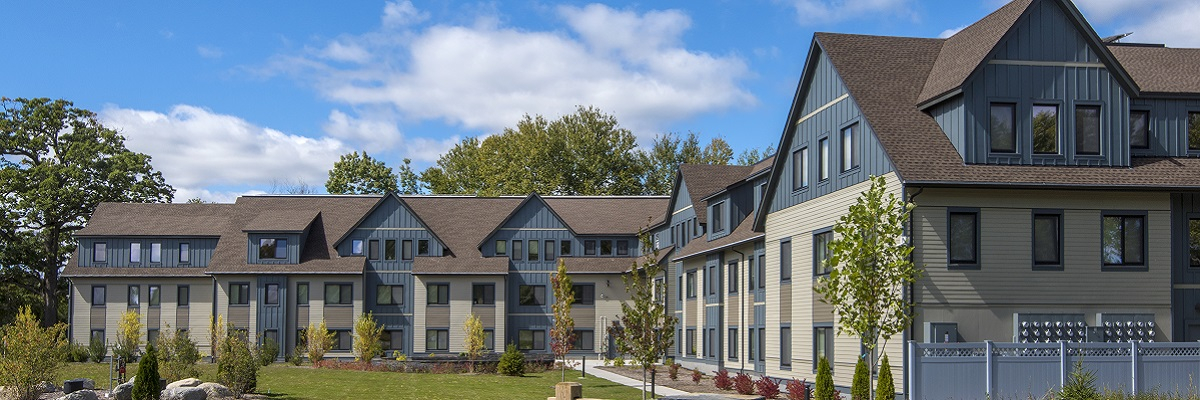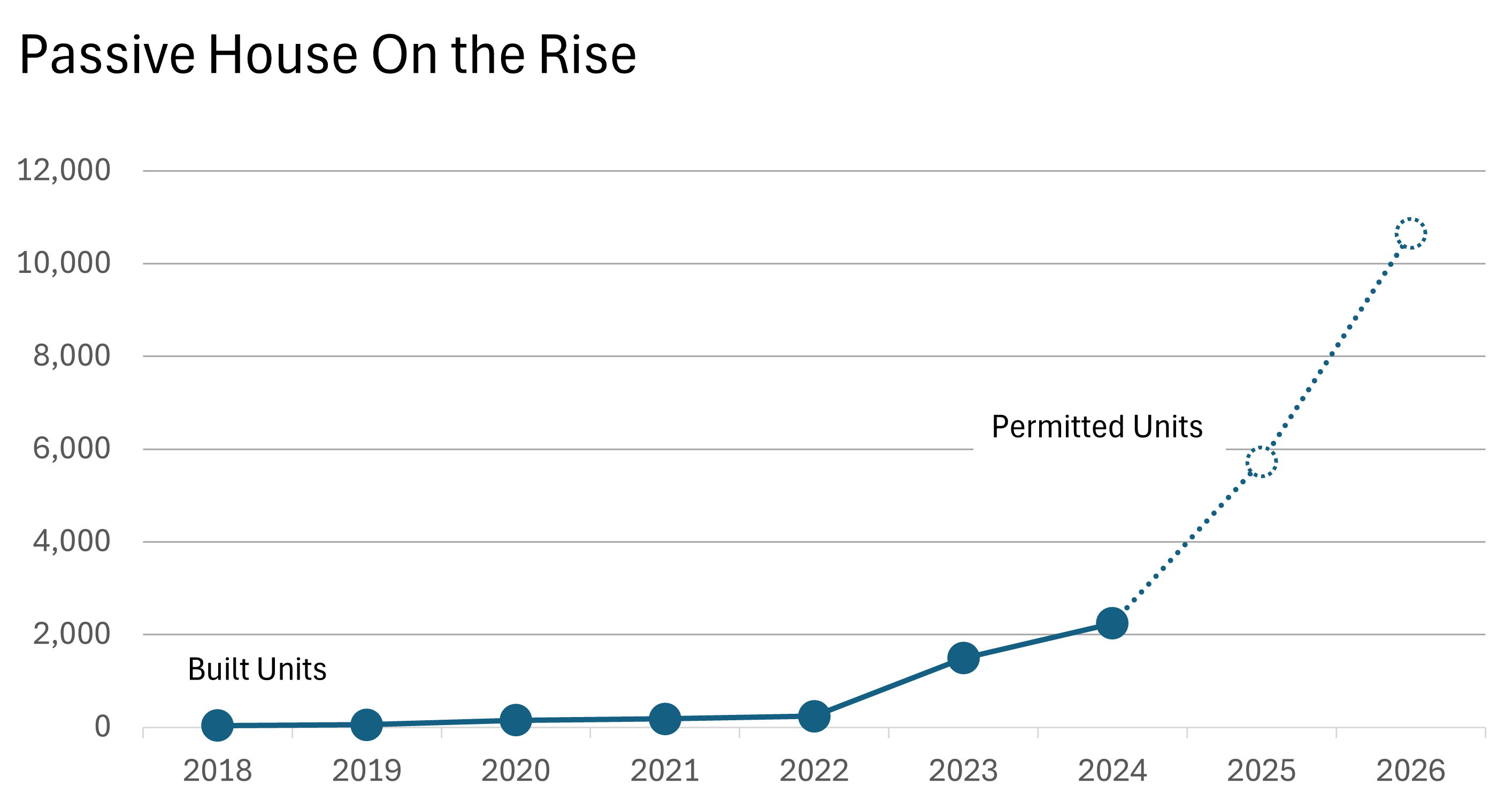
The Challenge: Dispel Misperceptions about Passive House Construction Costs
Passive House standards provide a framework for the construction of exceptionally low-energy, resilient, healthy, and comfortable buildings. However, as of 2017, there was only one certified Passive House multifamily building in Massachusetts and little data was available on the costs associated with building to Passive House standards.
About the Passive House Design Challenge
MassCEC sought to demonstrate that multi-family affordable housing that meets Passive House standards can be built at a low premium in Massachusetts. The Passive House Design Challenge awarded up to $4,000 per unit for eight new-construction, affordable housing developments that were seeking Massachusetts Low Income Housing Tax Credits (LIHTC). All eight projects are now complete and occupied. While not all the data is yet available, the program has demonstrated that new construction can be built to Passive House standards with a 2.2% average cost premium.
2017 - 2022
Design & Construction
Pilot Projects
Program Accomplishments
Cost Demonstration
- The seven projects that achieved Passive House certification appear to have incremental costs ranging from 1% to 4.1%, with an average of 2.2%.
- IIncremental construction costs are expected to be mostly offset by MassSave incentives and lower heating and cooling costs as compared to non-Passive House buildings.
- The Design Challenge's incentive structure informed Mass Save's incentives for Passive House multifamily new construction.
- The American Council for an Energy-Efficient Economy (ACEEE) published a paper by MassCEC and ICF, "Scaling Up Passive House Multifamily: The Massachusetts Story." Download the presentation slides or listen to the WBUR story.
Accelerated Adoption of the Passive House Standard
- As of January 2025, 48 Massachusetts cities and towns had adopted the Municipal Opt-In Specialized Energy Code, which requires Passive House certification for new construction of multifamily buildings over 12,000 square feet.
- As of March 2025, 224 multifamily buildings with nearly 6,000 units were on the path to construction and to certifying to the Passive House Standard.

Awardee Details
Owner & Project |
Location |
Units |
Award |
Incremental Cost |
|---|---|---|---|---|
South Boston |
55 |
$220,000 |
||
Northampton |
53 |
$212,000 |
||
Hanson |
48 |
$192,000 |
N/A |
|
Cambridge |
98 |
$147,000 |
||
NeighborWorks Southern Mass’s Holbrook Center Senior Housing |
Holbrook |
72 |
$131,200 |
|
NorthShore Community Development Corporation’s Harbor Village |
Gloucester |
30 |
$120,000 |
|
Preservation for Affordable Housing, The Loop at Mattapan Station |
Mattapan |
135 |
$540,000 |
|
Preservation of Affordable Housing The Kenzi at Bartlett Station |
Roxbury |
52 |
$168,000 |
*Depot Village has been Passive House pre-certified, but will not make Passive House certification.
Lessons Learned
- Higher levels of Passive House education and experience are highly correlated with lower incremental cost.
- Better balanced ventilation was one of the consistently higher costs and more difficult aspects of achieving certification.
- Simpler, more compact architectural designs tended to be simpler to upgrade to Passive House.
- Bringing the Passive House Verifier into the project team early to review designs, even prior to Construction Drawings, led to better success.
- Conducting whole-building blower door test at construction midpoint was critically important.
- Successful teams paid particular attention to intentional penetrations.
Incentives
Mass Save® Passive House Incentives
Mass Save® offers a generous incentive program for new construction projects of five or more units to consider and certify building to Passive House standards. Both market-rate and affordable new construction projects are eligible. The program offers design-phase incentives; certified projects may be eligible for an additional $3,000 per unit (as of March 2025).
Educational Resources and Certification
Reimbursement for Passive House Certification Courses
Courtesy of Mass Save®, Massachusetts residents and workers may earn significant reimbursement of registration fees for Passive House certification training for designers, consultants and builders. The content is relevant to professionals working on all high-performance building projects.
MassCEC webinar: "An Introduction to Multi-Family Passive House"
Get the basics here!
Learn More!
The following organizations offer a wealth of videos, webinars, trainings, and more.